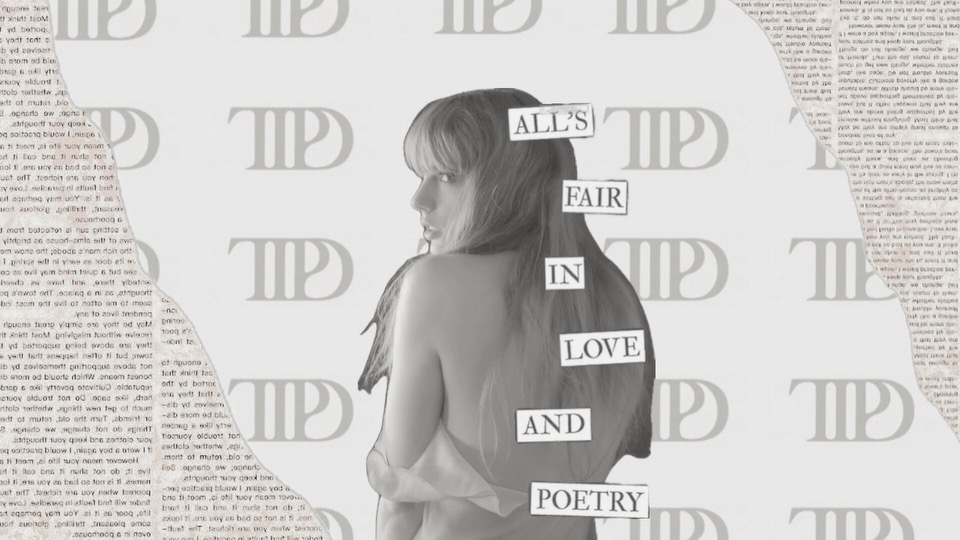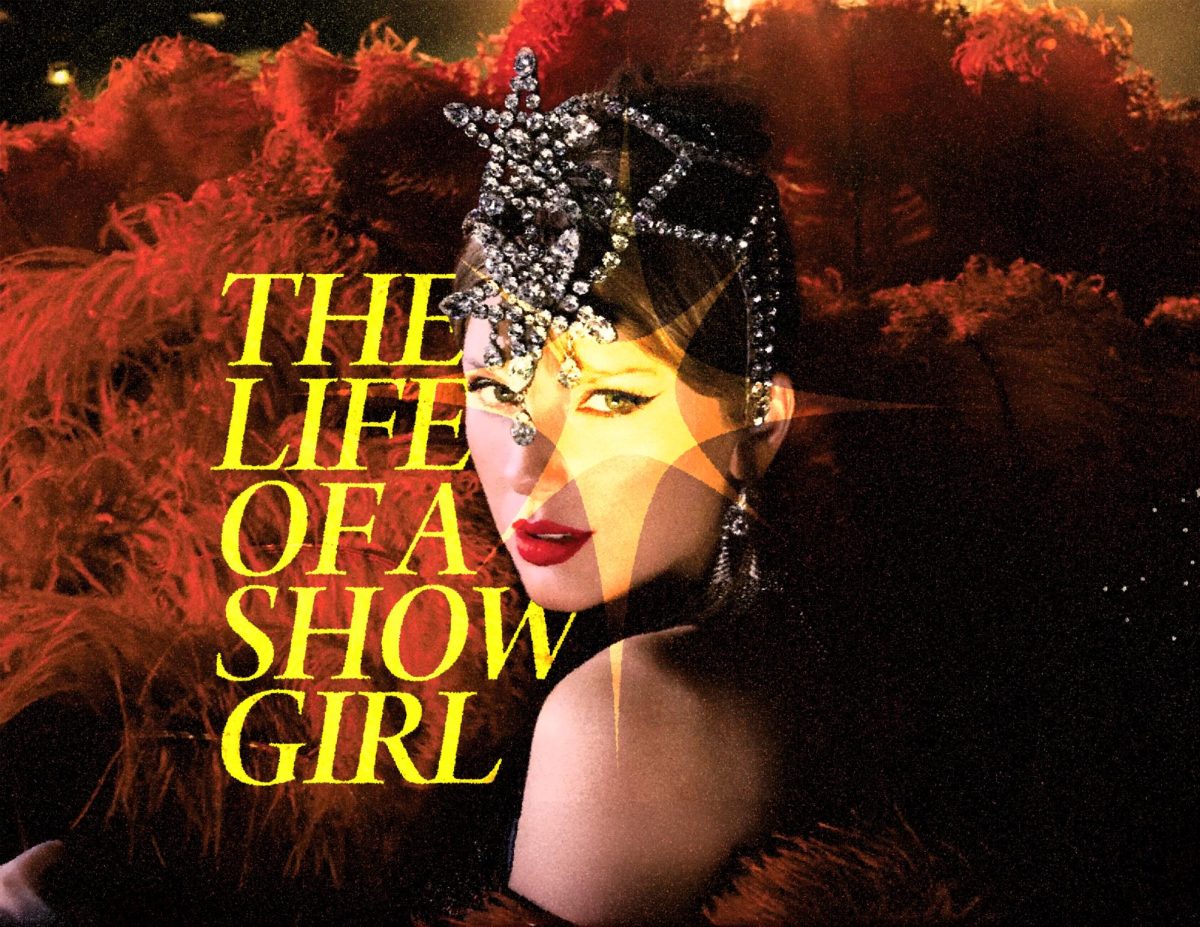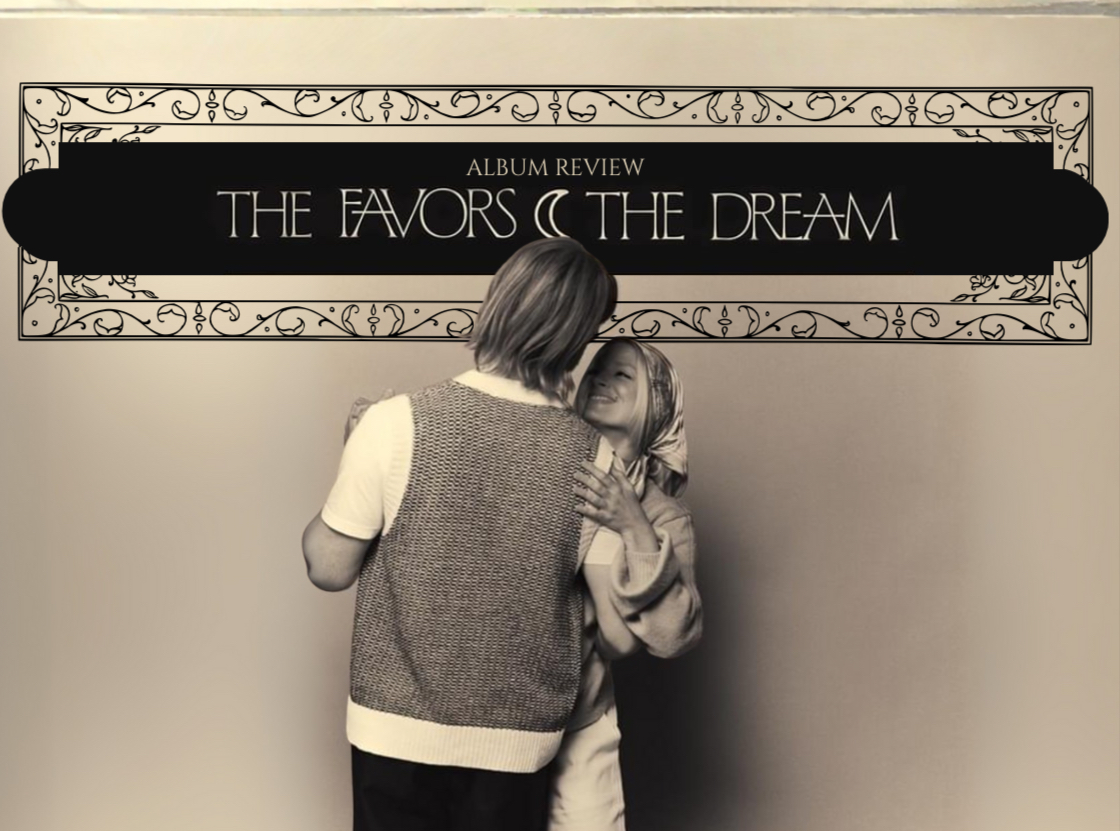Beloved pop princess Taylor Swift released her 11th studio album “THE TORTURED POETS DEPARTMENT” April 19, giving fans the perfect balance between soul-crushing lyricism and addictive instrumentals.
The 16-track genre-bending album features some of Swift’s most well-written songs, all of which depict honest and raw lyrics, giving listeners a peek inside the window of the singer’s psyche.
Swift banded with her fellow tortured musicians, three-time Producer of the Year winner Jack Antonoff, known for his previous work on Swift’s last six albums, and Aaron Dessner, known for his work on Swift’s last three albums, to help write and produce numerous songs on the album.
Antonoff and Dessner both have their own clear style of production and writing, and it comes in handy on this album. Their varying styles helped balance the album’s tonality.
Antonoff’s signature synth on standout tracks “Down Bad” and “Guilty as Sin?” coupled Swift’s heart-wrenching lyrics with catchy and compelling music, giving pop fans their musical fix.
Dessner left his mark on the album just as much as Antonoff. He co-wrote and co-produced some of the album’s strongest songs. His softer, delicate production style gave fans of “folklore” and “evermore” the folk-like style they’ve been craving from the singer while maintaining an even and cohesive sound with Antonoff.
Dessner’s production and writing on songs like “So Long, London” and “The Smallest Man Who Ever Lived” made the songs stand out in his portfolio of producing and writing credits.
Swift’s world-building for each of her albums has set her apart from other artists in the industry. This album is no exception. She built a black-and-white aesthetic for the album that resembled a psychiatric unit, emphasizing the idea that her writing on this album has taken the place of therapy for her. This idea and aesthetic is maintained throughout the entirety of the album.
The lead single and opening track “Fortnight (feat. Post Malone)” aided in setting the tone for the album with themes of insanity, heartbreak, infidelity, addiction and sense of self. Malone’s impressive and delicate vocals on the album enhance the song and blend beautifully with Swift’s.
A highly anticipated track on the album since the release of the tracklist was “But Daddy I Love Him” and Swift delivered. The upbeat instrumentals on the album were addictive, and the hook of the song, “Now I’m runnin’ with my dress unbuttoned / Scrеamin’, “But, Daddy, I love him / I’m havin’ his baby” / No, I’m not, but you should see your faces,” proved itself to be one of the catchiest lines on the album. The song was a strong addition to the other more sorrowful tracks, which helped make the album more three-dimensional.
One of the most notable songs on the album is “Who’s Afraid of Little Old Me?” Written by Swift alone, the song highlights the singer’s struggle with the world’s perception of her. She writes, “I was tame, I was gentle ’til the circus life made me mean / “Don’t you worry, folks, we took out all her teeth”/ Who’s afraid of little old me? / Well, you should be,” showing how the industry she works in turned her into someone she wasn’t before, while that same industry tyrannized her and kept her from fighting back.
Track 12, “loml,” is a play on the phrase “love of my life” as Swift takes the abbreviation and twists it to mean “loss of my life.” The somber song has a delicate piano instrumental which allows the lyrics to shine through. Lyrically, this is one of her strongest songs and deserves to be highlighted in her discography.
Swift is no stranger to dissecting the intricate web of the music industry and fame in her songs. In “Clara Bow,” she highlights what fame has done to women by writing short vignettes about 1920s “It Girl” Clara Bow, Stevie Nicks and herself. She weaves the stories together to make a commentary on the struggles of women being replaced after they are no longer “dazzling” to others as well as the way female artists are constantly compared to one another. The vulnerability of the song and the different stories makes it an intimate and engaging listen.
Following the midnight release of the album, Swift continued to surprise her fans, in true Swift fashion, by releasing “THE TORTURED POETS DEPARTMENT: THE ANTHOLOGY” with an additional 15 songs.
The double-album surprise proved itself as an unforgettable addition to the already uniquely vulnerable and engaging album. The themes explored in the initial album continued throughout the anthology.
“I Hate It Here” is an introspective glimpse into how Swift locks away her own mind’s captivity through daydreaming and playful escapism. Her raw honesty in the lyrics alongside the vivacious guitar elevates the childlike wonder that comes along with daydreaming.
“Peter” tells the story of a failed love by referencing the original tale of Peter Pan when he promised to come back for Wendy after he grew up and he never did.
This isn’t Swift’s first time referencing the tale of Peter Pan and Wendy. In her beloved song “cardigan” from her album “folklore,” Swift sings “Tried to change the ending / Peter losing Wendy,” a clear mirror of the two songs’ overarching theme. In the bridge of “Peter,” she sings “With your feet on the ground, tell me all that you’d learned / ‘Cause love’s never lost when perspective is earned” which parallels the line in “cardigan” where she says “And when you are young, they assume you know nothing.” This continued theme of learning from relationships that still feel so youthful bridges Swift’s discography beautifully, showing that she herself is learning from her own writing.
The parallels in the song to her previous work, coupled with the strong lyrics, make “Peter” a standout track on the album. While it isn’t a song many listeners would immediately gravitate toward, it shows immense promise as being one of her most lyrically strong tracks in her discography, and one that fans will come to love.
One of the most notable tracks from the anthology is “The Prophecy” in which Swift’s themes of sense of self and religion carry over to create one of her most vulnerable songs. Aside from the lyricism in the song, the song is one of Dessner’s strongest production credits on the album. The airy hymn-like instrumentals allow Swift’s voice to carry the tempo of the song as the music stays stable throughout the song.
The final song “The Manuscript” is the perfect conclusion to the songbook Swift has created with this album. It encapsulates everything the album represents in one song; the idea that the story of her life is within her music, and once the chapter closes, the stories that were once hers now belong to the world to analyze. The song stands as the thesis statement for the album as it goes through the different phases of Swift’s life from her mature point of view, a common overarching theme of the album.
The bridge of the song is the strongest aspect of the song and easily is one of Swift’s most well-written verses. Backed by a steady piano melody, Swift sings “And the years passed / Like scenes of a show / The professor said to write what you know / Lookin’ backwards / Might be the only way to move forward / Then the actors / Were hitting their marks / And the slow dance / Was alight with the sparks / And the tears fell / In synchronicity with the score / And at last / She knew what the agony had been for.” The comparison of her life to a movie that rises and falls with the music is a beautiful analogy for how Swift views herself and the music she creates.
Swift has compared her life to being a show for others to watch before, however, with this song it feels different. She doesn’t just note how she feels she is being watched, but instead, she highlights the raw emotion that comes with the rise and falls throughout the plot of a movie, her music being the “score” of the movie. This unique perspective adds multiple layers to the song, making it captivating and addictive. Every listen feels like you’re hearing it for the first time.
Going into this album, listeners need to look at the literary devices Swift uses to fully understand the beauty of the album. By taking every lyric literally, listeners may miss what she is trying to share with us. This is an album for those who have a deep appreciation and love for literature and poetry – it’s clear Swift’s own passion for literature shines through in this work.
“THE TORTURED POETS DEPARTMENT” and its anthology display powerful and gritty storytelling through a collection of Swift’s best writing, proving that the emotionally transformative album is her best fascicle of music. The album feels as if Swift cut a vein open and let everything bleed onto the page, her blood being the catharsis she needed to close this chapter of her life.





















